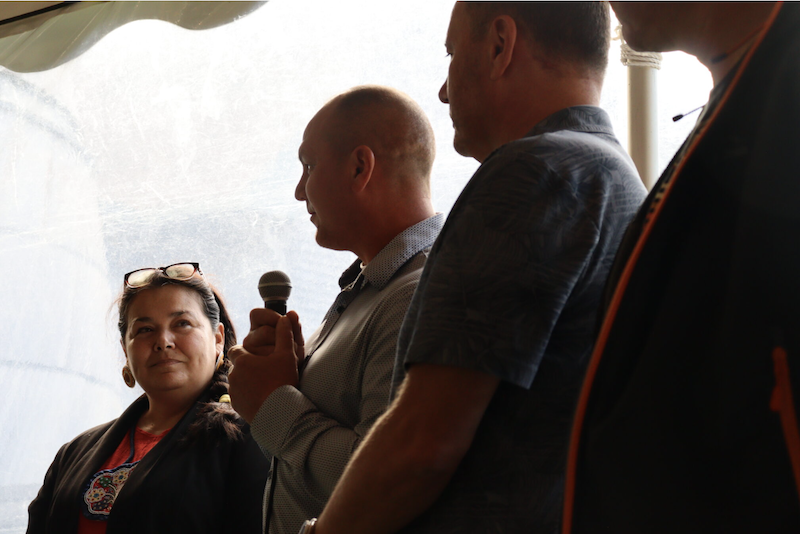(Left to right) Chief of the Houlton Band of Maliseet Indians Clarissa Sabattis looks on at Chief Bos Bassett of the Passamaquoddy Tribe and Sipayik and Chief Kirk Francis of Penobscot Nation during Nihkaniyane on July 11. (Emma Davis/ Maine Morning Star)
The Wabanaki Nations, specifically the Passamaquoddy Tribe and Penobscot Nation, now have expanded authority to prosecute more serious crimes committed by tribal members on their lands, thanks to a new law that took effect recently. This jurisdictional change doesn't yet apply to the Houlton Band of Maliseet Indians and the Mi’kmaq Nation, as they are still developing their court systems. The law represents the most substantial update to the Maine Indian Claims Settlement Act since 1980, although broader reforms have faced opposition.
Penobscot Nation Tribal Ambassador Maulian Bryant expressed readiness for these changes, noting the tribe's judicial preparedness to handle the expanded responsibilities. Meanwhile, the Houlton Band of Maliseet Indians and the Mi’kmaq Nation are making strides towards establishing their own court systems, with plans to fully assume jurisdiction in the near future.
This article was originally published in the Maine Morning Star.
This change builds on other recent expansions, including amendments to the federal Violence Against Women Act, which extended protections to the Wabanaki Nations. These developments are seen as vital steps toward greater sovereignty and legal recognition for the tribes.
While the full overhaul of the Maine Indian Claims Settlement Act remains elusive, tribal leaders like Bryant, Chief Clarissa Sabattis of the Houlton Band, and Vice Chief Richard Silliboy of the Mi’kmaq Nation are optimistic about the progress being made in strengthening tribal-state relationships and enhancing tribal legal authority. They view these changes as paving the way for further legal recognition of Wabanaki sovereignty and the continued implementation of task force recommendations aimed at improving tribal-state relations.








